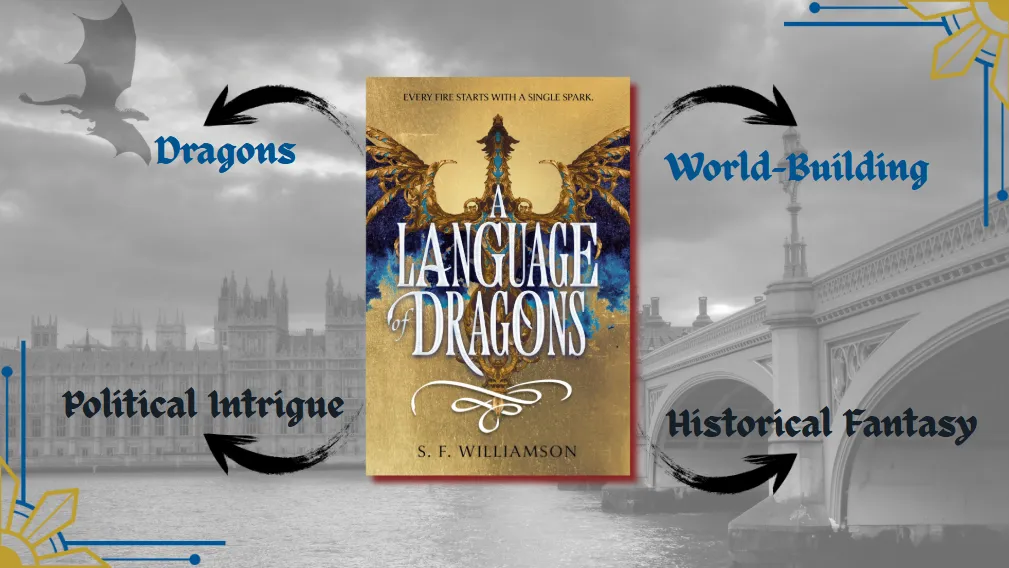
The Slow Yet Sneaky Grip of This Book
The Slow Yet Sneaky Grip of This Book
This book was slow, but somehow engaging. You know those books where you feel like you're crawling through the pages, but then you look around and you're halfway through and staring at your Kindle like, "Huh? Already?" Yeah, that's pretty much what happened here. It's not action-packed by any stretch, and if it's a dragon battle every 10 pages you can expect, you'll be disappointed. But it still kept me reading, most likely because the world-building was actually really interesting.

Dragons, Dragons, Dragons: My Kryptonite
Dragons, Dragons, Dragons: My Kryptonite
Let’s be real. I’m a sucker for anything with dragons. If there’s a dragon on the cover or mentioned in the blurb, my brain goes, “Say less, we’re reading it.” There’s just something about dragons in fantasy books that instantly pulls me in, and this book delivered that aspect beautifully.
Here, dragons and humans exist together, but it's not that simple. At one point, humans and dragons existed in a highly interdependent society. Dragons owned stores, worked, and were just part of normal life. That familiarity has all worn off now, but dragons do still exist, hiding in the higher reaches of government, pulling strings and making choices behind the scenes. That coexistence created an atmospheric sense of tension throughout the book that I enjoyed.
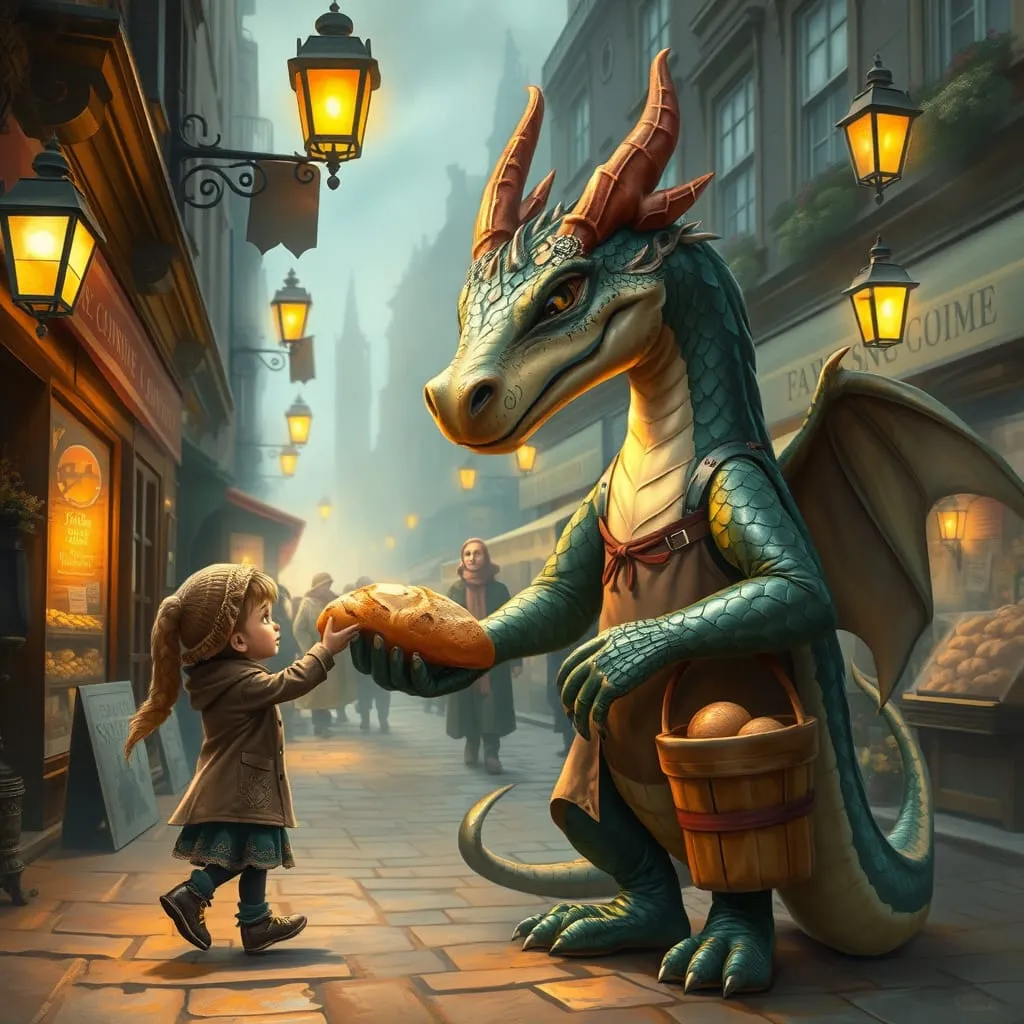
Created using NightCafe

A World of Classes and Corruption
A World of Classes and Corruption
The world is divided into three rigid classes:
First Class: The rich elite, living their best lives with all the luxuries.
Second Class: The “middle class,” getting by with decent conditions.
Third Class: The impoverished, with barely any access to food, healthcare, or security.
You’re born into a class, and generational placement matters. But at 17, you take an exam that determines if you stay in your class or get demoted. Moving up isn’t an option, but falling down is always a threat. This adds realistic pressure to the characters, creating a society where one mistake can ruin your entire future.
Our FMC, Vivien, is a second-class linguist prodigy, fluent in multiple human and dragon languages. She nails her exams with flying colors, but it’s hinted that she may have done something terrible to ensure her success while causing her closest friend to fail and get demoted to the third class. The guilt and secrecy around this event build tension throughout the book, and when the reveal comes, it’s a lot (more on that later).
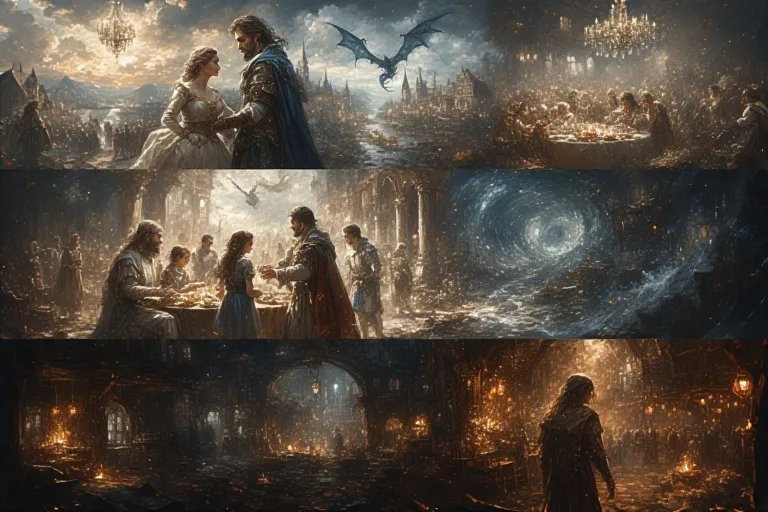
Created using Perchance

Let’s Talk About Vivien: Our Infuriating FMC
Let’s Talk About Vivien: Our Infuriating FMC
Oh, Vivien. Where do I begin? Naive. Immature. Ignorant. Selfish. Privileged. Frustrating.
These words are Vivien in a nutshell.
Now, I get it, she’s 17, so some flaws are acceptable. She’s learning, growing, and making mistakes, and I’m all for a morally grey heroine who stumbles through her decisions. But Vivien takes this to a level that made me want to fling my Kindle across the room.
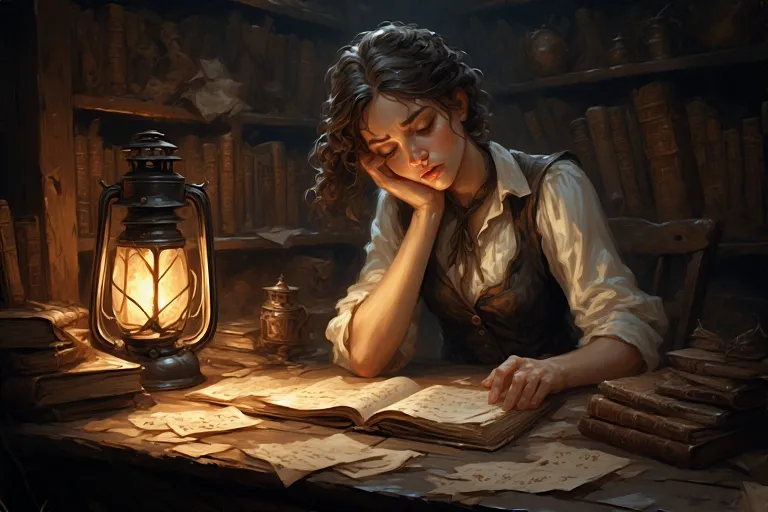
Created using Perchance
One redeeming quality she has is her awareness of her flaws. Whenever she notices that her beliefs are naive, she stops to reflect and attempts to change her ways. But does she ever change? Sometimes. Other times, she simply refuses to face the truth. Stubbornly refusing to recognize clearly incorrect beliefs, placing unworthy people on pedestals, and avoiding the plain obvious staring her in the face.
That’s not headstrong. That’s just dumb.
As the book progressed, her redeeming quality dissolved, overshadowed by her blatant disregard for morality. Her intellectual capabilities mean nothing when she lacks basic common sense. By the end, I was like, “Yeah, I officially hate this character.”

Characters Need Flaws, But…
Characters Need Flaws, But…
I understand characters need flaws to feel real. Good people doing bad things creates complexity, making them more than just ink on paper. It gives us a chance to see that even heroes mess up, and it makes for good storytelling.
But there’s a line.
Vivien crossed it.
The book hints throughout that Vivien has done something terrible to her friend. We see her inner monologue, dripping with guilt, regret, and shame, making us curious about what really happened. With all this build-up, the reveal needed to be significant to justify the hype.
And it was. Oh, it was significant alright.
Significant enough to reach the “no reader will ever forgive this” territory. It shattered any chance of me caring about Vivien. Before the reveal, I was indifferent toward her, hoping for some decent redemption. After the reveal? Nope. Done. She could save the world, and I still wouldn’t care.
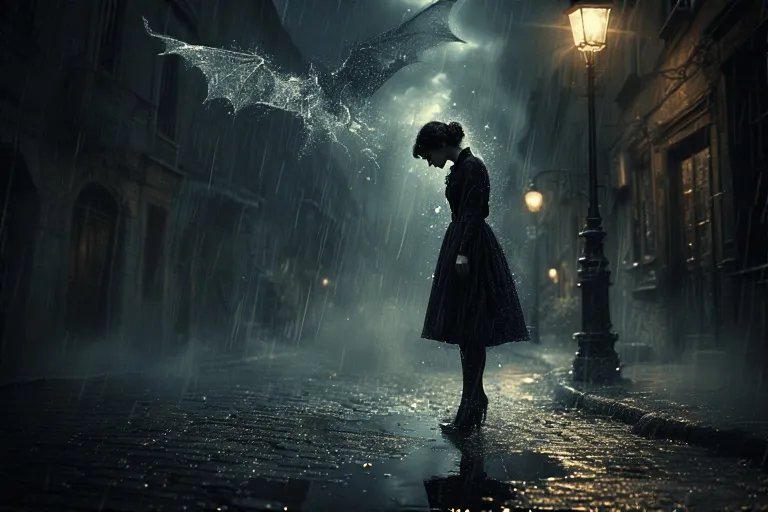
Created using Perchance

Atlas: The Soft-Boy We Didn’t Deserve
Atlas: The Soft-Boy We Didn’t Deserve
Now, let’s talk about Atlas, one of the recruits from the third class working under the government alongside Vivien. Atlas is a soft-natured, protective cinnamon roll who deserved so much better than to be entangled in Vivien’s mess.
He’s moral, patient, and genuinely good, standing in stark contrast to Vivien’s chaos. But despite his goodness, the book fails to explore his character deeply. He exists to prop up Vivien’s arc, which is a shame because he had so much potential.
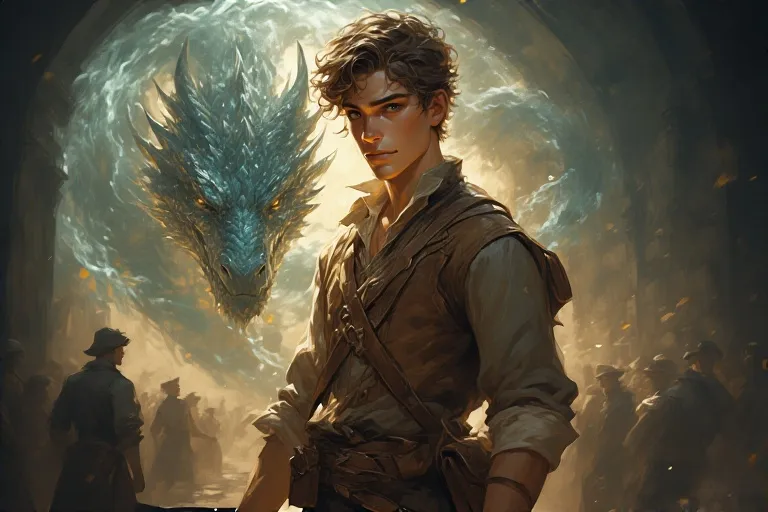
Created using Perchance

Romance? What Romance?
Romance? What Romance?
This book promised slow-burn enemies-to-lovers.
Umm, where?
They start off as strangers, take one look at each other, and suddenly, they’re interested. It’s not even insta-love because there’s barely any interaction to call it “love.” They’re just two hormonal teenagers eyeing each other with zero actual connection.
Atlas sticks his neck out for Vivien repeatedly, and I honestly don’t get why. She’s reckless, selfish, and morally grey in the worst way possible, while he’s the epitome of righteousness. Is she pretty? Is that it? Because I saw no other reason for him to risk everything for her.
As someone who who enjoys romance if its present, I was incredibly disappointed. It felt like a wasted opportunity, especially since the book’s atmosphere and stakes could have made for an excellent, tension-filled slow burn if handled properly.
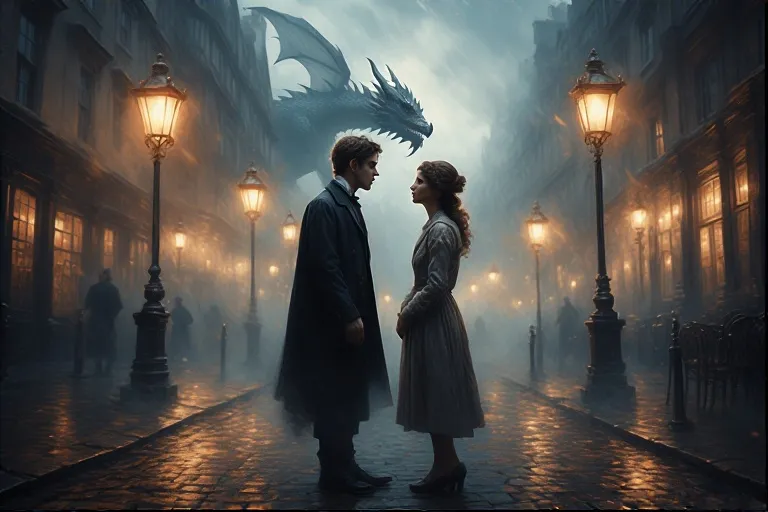
Created using Perchance

The Ending: Meh
The Ending: Meh
I had seen people hyping up the ending, calling it “jaw-dropping,” so I was ready for it. But when it happened, I felt nothing. It happened, I blinked, and I was relieved the book was over.
The ending tries to set up intrigue for a sequel, and while I can see the potential for excellent character development, especially for Vivien, I’m not sure if I care enough to continue.

Political Intrigue Done Right
Political Intrigue Done Right
One of the strongest points of the book is the political world-building. The corruption, class structures, and plays for power are well established, making for all too eerie parallels with real-world systems of unfairness and government oppression.
Reading about the corrupt government in this fantasy world made me feel how realistic it feels to real life, without the dragons (sadly). The alternative 1920s London setting provided a gritty, historical vibe to the fantasy, which felt lived-in and conceivable.

The Dragons: Sentient and Political
The Dragons: Sentient and Political
Dragons in this book aren’t just big lizards breathing fire. They’re sentient, intelligent, and multilingual creatures with their own politics and hierarchies. Some dragons even betray their kind, adding layers to the political intrigue and making the world feel expansive.
I’ve read other dragon books where they’re treated like glorified horses, but here, dragons have agency, goals, and voices, and it was one of my favorite parts of the book.

Created using NightCafe
While the book starts and ends with decent pacing, the middle drags, especially when Vivien spends ages decoding a new dragon language. If you’re here for fast-paced action, you’ll struggle through this section.

Final Thoughts: A Chaotic, Frustrating Ride
If I had to sum up my experience: The plot is worth 4 stars, but the insufferable FMC dragged it down to 3.
The world-building, dragons, and political intrigue are solid, but the lack of a compelling romance and an unlikeable protagonist overshadowed the good parts. I’m still debating if I want to pick up the sequel because, despite everything, the world holds promise.
If you enjoy:
✅ Morally grey heroines (to the point of frustration)
✅ Dragons with agency
✅ Historical fantasy with alternate politics
✅ Fantasy worlds with rigid class systems
…then give this book a shot.
But if you need to like your protagonist to enjoy a book, proceed with caution.
Rating: ⭐⭐⭐☆☆ (3/5)
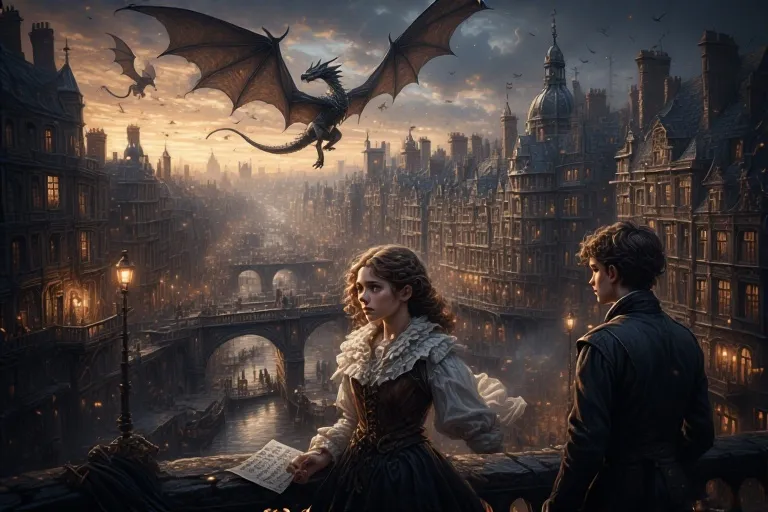
Created using Perchance
